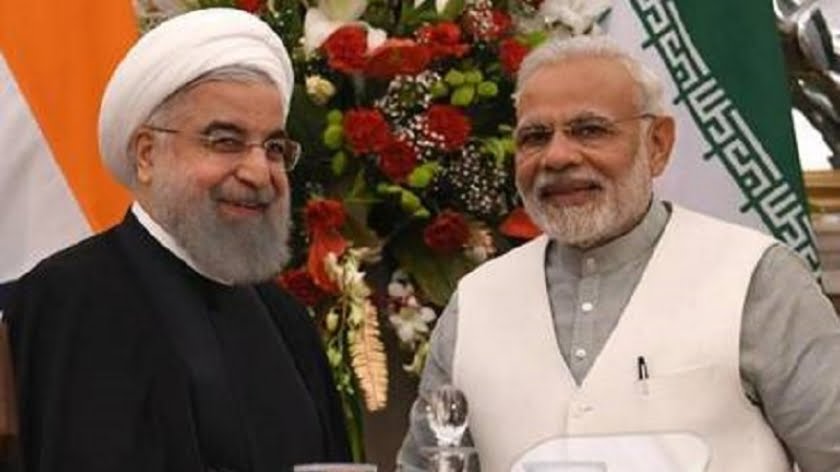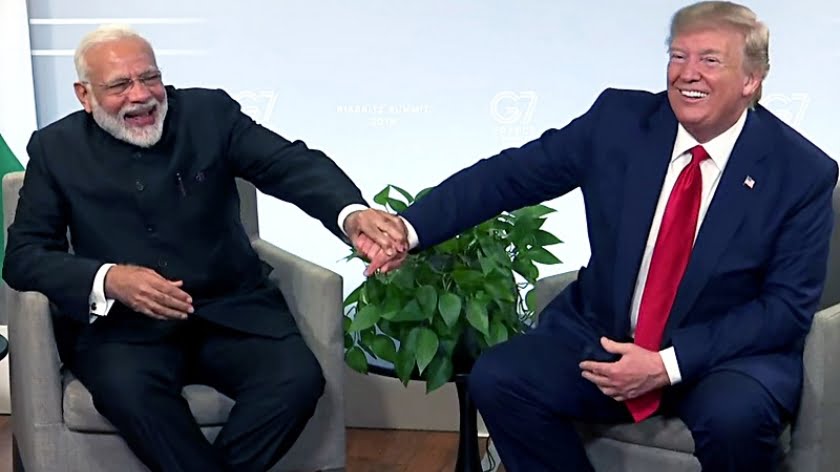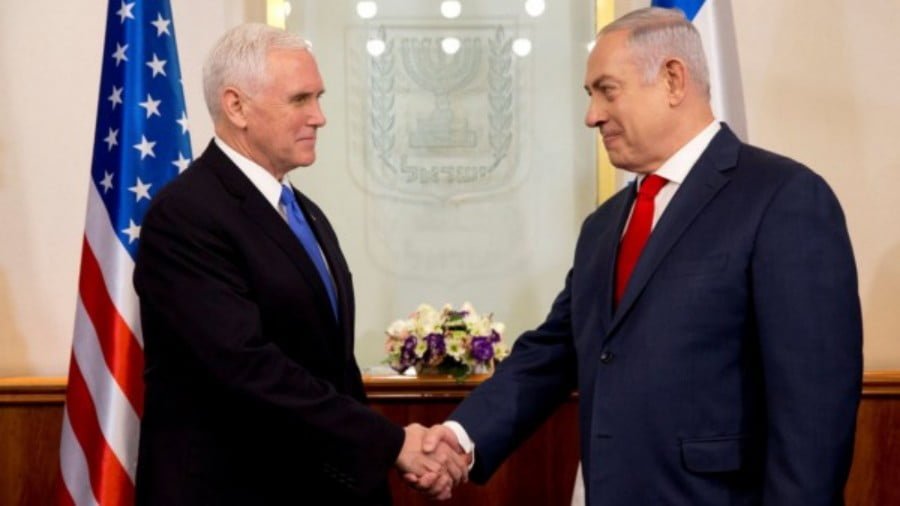India and Iran Aren’t Too Happy About the Afghan Peace Deal
India and Iran are the only two governments in the world which didn’t welcome the US-Taliban peace deal because they both realize the enormity of what they stand to lose by America’s pragmatic rapprochement with the same organization that it blames for facilitating the 9/11 terrorist attacks, but neither of them can really do much to spoil the peace process even if they pool their efforts towards that end, and they’d each be harshly condemned by the international community as the diplomatic “rogue states” that they’ve become if they dared to take any significant action in that direction.
***
Double Trouble
The Indo-Iranian relationship is one of the most peculiar in modern-day International Relations since New Delhi dutifully complied with Washington’s demands to cease importing Iranian oil (thereby depriving its “partner” of billions of dollars of much-needed revenue which in turn exacerbated its ongoing economic crisis) yet Tehran continues to align with it spite of having its dignity repeatedly trampled upon. The tacit coordination between India and its new “junior partner” Iran was on full display this weekend after both of them refused to welcome the US-Taliban peace deal. India’s Ministry of External Affairs released the following tersely worded statement which The Wire noticed had conspicuously omitted any supportive comments about this development and also refused to refer to the Taliban by name:
Indian Interests
“India’s consistent policy is to support all opportunities that can bring peace, security and stability in Afghanistan; end violence; cut ties with international terrorism; and lead to a lasting political settlement through an Afghan led, Afghan owned and Afghan controlled process. We note that the entire political spectrum in Afghanistan, including the Government, the democratic polity and civil society, has welcomed the opportunity and hope for peace and stability generated by these agreements. As a contiguous neighbour, India will continue to extend all support to the Government and people of Afghanistan in realising their aspirations for a peaceful, democratic and prosperous future where the interest of all sections of Afghan society are protected.”
India’s position was elaborated upon by the author last year in his analysis about how “India Has Sour Grapes Over America’s Afghan Peace Talks” where he explained how the South Asian state envisages using the land-locked country as “strategic depth” for waging its HybridWaron CPEC via terrorist proxy. It knows fully well that the irreplaceable behind-the-scenes support that the global pivot state of Pakistan provided in making this peace deal possible will result in strengthening its security and tying its interests closer to India’s new military-strategic American ally’s, particularly with respect to Washington’s interest in ensuring that Afghan soil isn’t used to destabilize Islamabad and thus endanger the viability of its N-CPEC+ corridor that the US might rely upon to expand its regional influence by economic means after the war.
For these reasons, India doesn’t endorse the US-Taliban deal, though it won’t openly condemn it either because America is its newest military-strategic partner, especially after Trump’s successful visit last week confirmed the completion of India’s geopolitical pivot towards the West. It’s likely that the American leader also explained his country’s motives for the impending deal to his Indian counterpart, which while probably not allaying its concerns, was presumably a much-appreciated gesture of respect. As such, India will continue to observe how events unfold and hold out hope that the process doesn’t succeed, but it’s unlikely to be able to do anything of significance to shape events towards its desired end of seeing the US indefinitely remain in Afghanistan.
Iran’s Statement
Iran’s Ministry of Foreign Affairs, meanwhile, had comparatively more to say, but nevertheless walked in lockstep with its Indian “senior partner” in refusing to welcome the deal as well, going even further to describe the US as having “no legal position” to broker peace in a provocative move that also caught the attention of Russian international media such as RT and Sputnik:
“In a statement on Sunday, the Iranian Ministry of Foreign Affairs has highlighted its standpoint on peace in Afghanistan as well as an agreement reached by the US and the Taliban in that regard. The Islamic Republic of Iran believes lasting peace will be established in Afghanistan only through intra-Afghan talks attended by the country’s political groups, including the Taliban, while taking into account the considerations of Afghanistan’s neighbouring countries. The Islamic Republic of Iran welcomes any development that would contribute to peace and stability in Afghanistan, and backs any Afghan-led efforts in that regard. The Islamic Republic of Iran believes the presence of foreign forces in Afghanistan is illegal and is one of the key contributors to war and insecurity in the country.
The pullout of these forces is a prelude to achieving peace and security in Afghanistan, and any move that sets the stage for the withdrawal of these troops will contribute to the establishment of peace in that country. The Islamic Republic of Iran regards the United States’ moves as an effort to legitimize the presence of its troops in Afghanistan, and is opposed to such moves. The US has no legal position to sign a peace deal or to decide the future situation of Afghanistan. We believe the United Nations enjoys good potential to facilitate intra-Afghan negotiations as well as to monitor and guarantee the implementation of the agreements reached. While respecting the territorial sovereignty and integrity of Afghanistan, and in line with its national security strategy, the Islamic Republic of Iran stands ready to offer any help to establish peace, stability and security in Afghanistan.
We hope a government will take office in Afghanistan that will establish cordial and brotherly relations with its neighbours and will be able to uproot terrorism.”
Iranian Interests
The reader shouldn’t be deceived by the wording of Iran’s statement since its quip about how it “welcomes any development that would contribute to peace and stability in Afghanistan” is insincere because it immediately qualified that position by stating that it “backs any Afghan-led efforts in that regard”, which therefore means that it doesn’t apply to the US-led ones that just saw the conclusion of last weekend’s historic agreement. Furthermore, it shouldn’t be forgotten that the late Maj. Gen. Soleimani actually assisted the US with its 2001 invasion of Afghanistan by providing valuable intelligence on Taliban positions due to Iran’s long-standing animosity against the group after they killed several of its diplomats during an attack on its consulate in Mazar-i-Sharif in 1998.
As such, Iran’s “official” position of “believing that the presence of foreign forces in Afghanistan is illegal and is one of the key contributors to war and insecurity in the country” is also insincere. Having said that, the Islamic Republic reportedly maintains clandestine contacts with some of the group, though it’s unclear whether this is with the organization’s “central command” or simply a “pragmatic faction”. It was for this “politically incorrect” reason why there was earlier speculation that the latest US-Iranian tensions might negatively impact the Afghan peace process, though this feared scenario was debunked by a Taliban spokesman speaking to Iranian media last month. In any case, Secretary of State Pompeo still warned Iran against “spoiling” the peace deal that was just agreed to, though it’s unlikely that it’s even capable of doing so if it wanted.
The point, however, is that Iran doesn’t really like the Taliban all that much, but that it’ll cooperate with some of its members for pragmatic reasons nowadays related to their shared interests in killing the American occupiers. Upon the Taliban’s rapprochement with their decades-long enemy, however, Iran realized that it’s now increasingly irrelevant since it sacrificed some of its “goodwill” with Kabul by previously cooperating with the “national liberation movement” though this ultimately turned out to be all for naught. This explains why Tehran believes that the peace deal is “illegal” and wishes that the UN successfully brokered intra-Afghan talks instead, both of which are unrealistic positions to have since the US is the predominant military force in Afghanistan and therefore naturally in the driver’s seat when it comes to deciding the political solution to that conflict.
The Indo-Iranian Divergence With Russia
Interestingly but not at all unpredictably, the Indo-Iranian position is at divergence with Russia’s despite all three countries supposedly being on excellent terms with one another and in full coordination over everything, at least according to Alt-Media dogma. That was always a gross oversimplification that failed to account for Russia’s muchcloser relations with “Israel” than with Iran and the Eurasian Great Powers’ fast-moving rapprochement with Pakistan in spite of its Indian partner’s uneasiness with this trend. Now, however, yet another fault line has emerged in their relations after President Putin’s special envoy for Afghanistan Zamir Kabulov praised the US-Taliban deal as “directly beneficial for Russia“, which conclusively proves that Moscow’s position is the complete opposite of India and Iran’s.
This can be explained by several reasons, most notably the fact that “The Taliban’s Moscow Travels Have Turned Them Into Seasoned Diplomats” like the author wrote last year following the group’s visit to the Russian capital and subsequent de-facto recognition as legitimate political actors despite still formally being classified as “terrorists”. Russia has a pressing need to secure its Central Asian partners from Afghan-emanating terrorist threats that could catalyze an uncontrollable outflow of “Weapons of Mass Migration” towards it largely unprotected southern borders, hence why it regards the Taliban as providing it with “strategic depth” from which to indirectly combat these threats before they materialize in that worst-case scenario. Accordingly, the US-Taliban deal is indeed “directly beneficial for Russia”, especially concerning its security interests.
That’s not all, however, since Russia also has grand economic-connectivity interests related to this outcome as well. As the author explained in his recent piece about how “This Five-Phase Strategy Can Strengthen Russian-Pakistani Trade Ties“, peace in Afghanistan would make N-CPEC+ much more viable, which would in turn fulfill President Putin’s proposal that he shared with the Valdai Club in October 2019 for creating an Arctic-Siberia-Indian Ocean Corridor that the author regards as a crucial component of Russia’s “Afro-Eurasia” vision for counteracting the US’ “Indo-Pacific” strategy (which is being used to “contain” China). Taken together, it makes complete sense why Russia supports the Taliban peace deal since its security and connectivity interests are both served as a result, even though this accord goes against India and Iran’s interests.
Concluding Thoughts
India and Iran stand out as international outliers given their obvious opposition to the Afghan peace agreement, despite not openly stating as much but very strongly implying how they truly feeling about this development given their official statements on the matter. Seeing as how they don’t realistically have the power to shape the outcome in the direction of their shared interests, it would have been most pragmatic for them to simply accept the strategic loss and modify their policies as a result, though the characteristic stubbornness of their strategic cultures explains why they refused to be flexible and instead portrayed themselves as “rogue states” in the diplomatic sense. That was a massive soft power mistake since India and Iran are now on the same side of this issue as disgraced neoconservative warmonger John Bolton is, which few across the world will ever forget.
By Andrew Korybko
Source: One World








Reblogged this on SCIENTIFEC INTELLIGENT SERVICES.